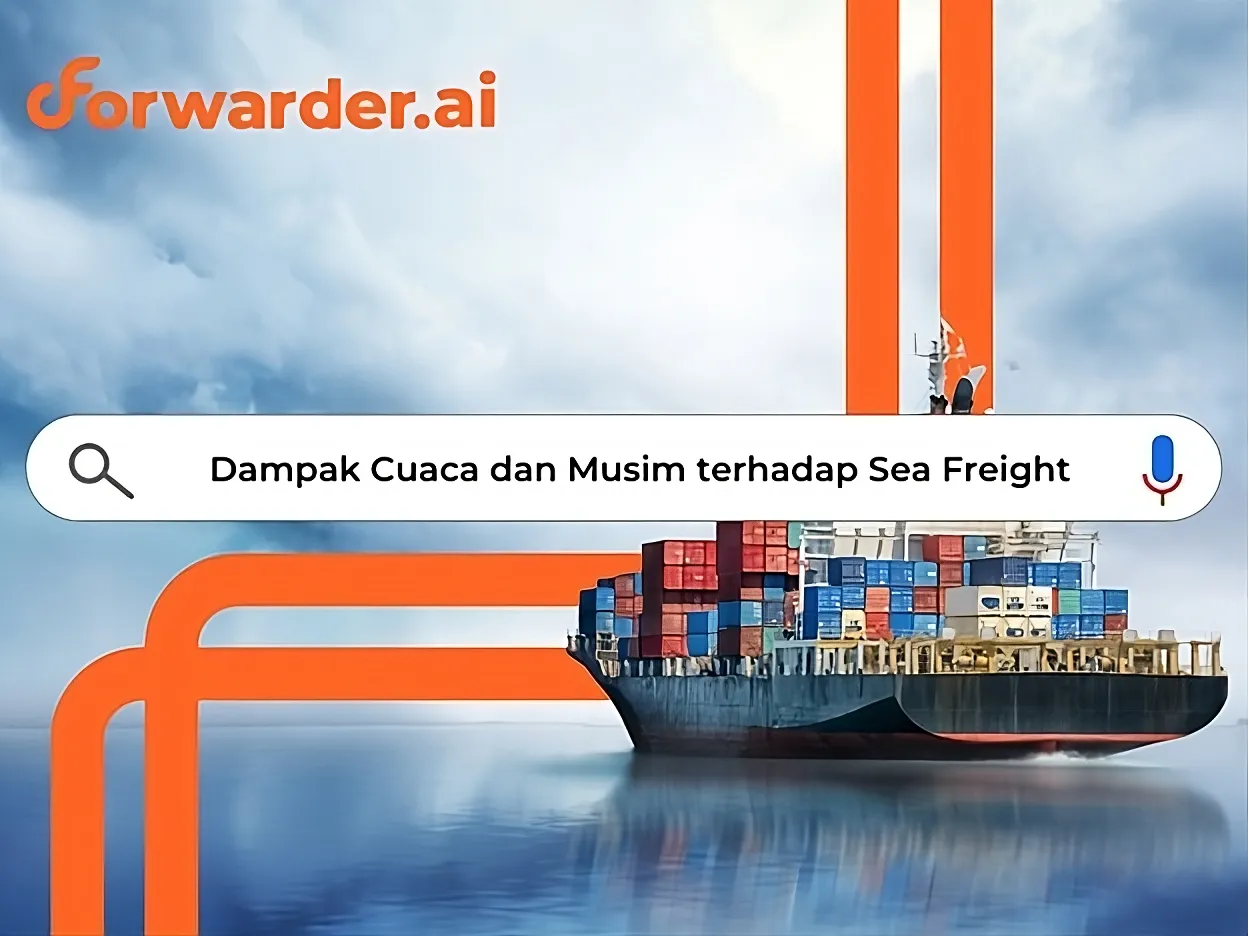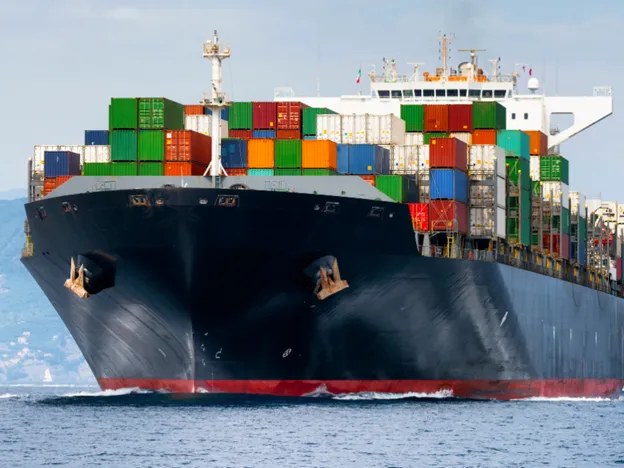
The influence of weather on ocean shipping.
Ocean freight, or sea freight, is one of the most important transportation methods in international trade. Based on data from the International Chamber of Shipping, around 90% of the world's total trade is transported by sea. However, sea freight is heavily influenced by weather conditions and seasons, which can affect shipping routes, delivery times, and even the safety of the goods being shipped. Therefore, understanding how weather and seasonality can affect sea freight is essential to anticipate and manage potential risks.
One of the biggest impacts of weather on sea freight is delays. Tropical storms, strong winds and high waves can disrupt ship routes, forcing vessels to take longer alternate paths or delay their journey. Data from the National Hurricane Center shows that every year an average of 12 tropical storms form in the Atlantic Ocean, and about 6 of them become major hurricanes that can disrupt shipping. This not only affects shipping times but also increases operational costs due to the use of more fuel and other additional costs.
Hurricane seasons, such as those in the Atlantic and Pacific Oceans, are a major concern for freight forwarders. Hurricanes such as Hurricane Katrina in 2005 and Hurricane Sandy in 2012 show how significant the impact can be on port operations and shipping schedules. During hurricane season, shipping companies must often reroute or even delay shipments to avoid violent storms, which can cause significant delays and additional costs.
In addition, extreme weather can also affect the safety of shipped goods. High waves and storms can cause damage to containers and the goods inside. For example, in 2018, Maersk Line reported major damage to several containers due to storms in the Pacific Ocean. Ships facing adverse weather conditions also have to face the risk of accidents, such as capsizing or running aground, which can cause huge losses.

Illustration of extreme weather during sea shipping.
Seasons also play an important role in the shipment of goods by sea. Winter in the northern hemisphere, for example, can cause freezing of ports and sea lanes, such as what happens in the Baltic Sea and North Sea. This can hamper or even completely halt the shipment of goods in the region. Data from the World Maritime University shows that ports in these regions can experience up to a 50% drop in activity during winter.
Read more : The Evolution of Logistics in Indonesia: From Colonial Times to the Present
On the other hand, summer often sees increased shipping activity due to more stable weather. However, this increased activity can lead to congestion at ports due to high shipping volumes. For example, in summer 2019, the Port of Shanghai recorded a record cargo volume of 43.3 million TEUs (Twenty-foot Equivalent Units), causing significant delays and congestion.
Dealing with weather and seasonal challenges in sea freight requires good planning and strategy. Shipping companies must monitor weather conditions constantly and have contingency plans in place to cope with unexpected situations. Modern technologies, such as weather satellites and real-time tracking systems, can help companies anticipate and respond to weather changes more quickly and efficiently. Data from the National Oceanic and Atmospheric Administration (NOAA) shows that the use of weather satellite technology can improve weather prediction accuracy by up to 85%.
In addition, cooperation with insurance companies to protect goods from losses due to extreme weather is also an important step. The Protection and Indemnity Club (P&I) Association notes that extreme weather-related insurance claims have increased by 30% in the last decade, demonstrating the importance of insurance in managing sea freight risks. With the right insurance, companies can minimize financial losses due to damage or loss of goods during shipment.
Read more : Understanding LCL : Everything You Need to Know
Freight forwarders should also consider the legal aspects associated with sea freight, especially in the context of weather and seasonality. Some countries have specific regulations governing shipping during certain seasons or in extreme weather conditions. Understanding and complying with these regulations is essential to avoid legal issues that could slow or hinder shipments.

Illustration of shipping goods using a cargo ship.
In the face of weather and seasonal challenges, collaboration between various parties in the supply chain is essential. Shipping companies, ports, vessel operators and insurers must work together to ensure that shipments can be made safely and efficiently. With an integrated approach and the use of advanced technology, weather and seasonal challenges in sea freight can be better managed, maintaining the smooth flow of international trade that relies on this method of transportation.
forwarder.ai features a Logistics Marketplace that connects shippers with logistics service providers through a centralized platform. On this platform, shippers can find various logistics service providers, including freight forwarders, cargo agents, and other transportation companies that offer both local and international freight forwarding services. Shippers can easily compare quotes based on price, estimated delivery time, additional services, and provider reputation. The transparent bidding system allows logistics service providers to quote directly through the platform, allowing shippers to choose the best one for their needs. After selecting a service provider, the entire shipping process can be organized through forwarder.ai, including scheduling pickup, real-time tracking, and shipping document management.
forwarder.ai also ensures that all incorporated service providers are verified and meet the necessary safety and compliance standards, giving shippers peace of mind. In addition, forwarder.ai works closely with logistics partners to offer more extensive and innovative services, such as door-to-door delivery, freight storage, and supply chain management. The benefits of using forwarder.ai's Logistics Marketplace include cost efficiency by comparing various offers, transparency of information that aids in decision-making, convenience in organizing the entire shipping process on a single platform, and security of goods during shipment through verified service providers. forwarder.ai facilitates a more efficient, transparent, and affordable shipping process, reducing complexity in international logistics.
Nikmati voucher hingga 200K untuk pengiriman pertamamu. Langsung berlaku dan otomatis terpotong saat checkout.
Dapatkan Diskon!